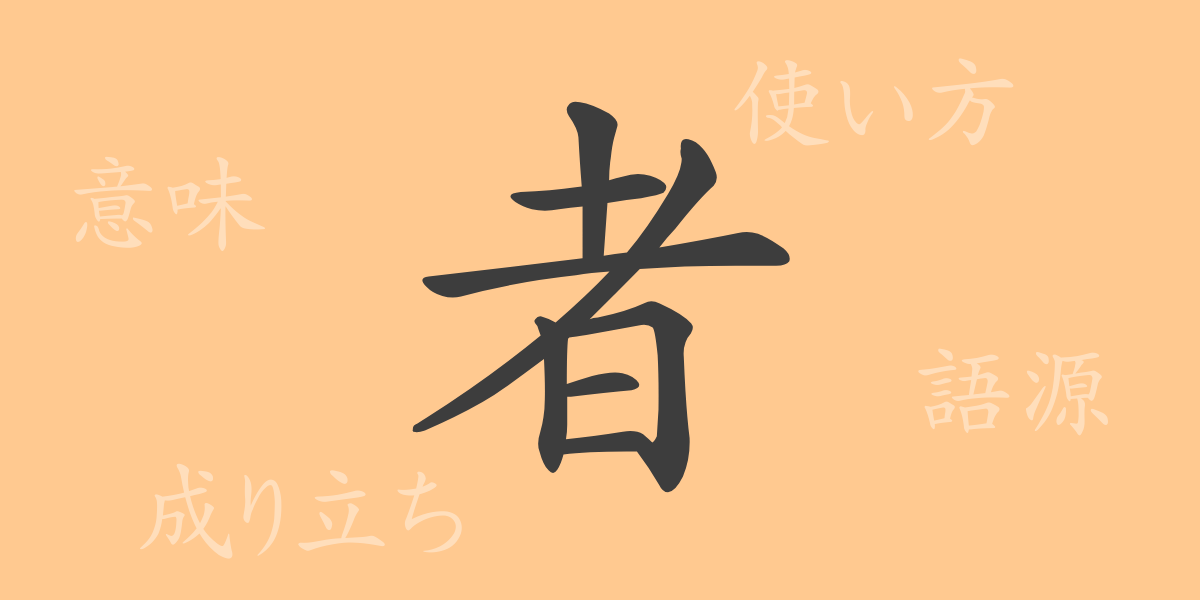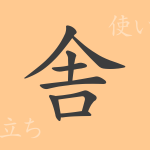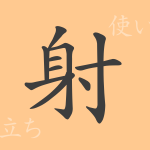The beauty of the Japanese language is reflected in its delicate characters. Particularly, kanji convey the depth of words through their shapes and historical meanings. Today, we will focus on the commonly used kanji “者(しゃ)” and explore its origins and modern usage. Let’s rediscover the charm of the Japanese language by delving into the power of this single character.
Origins of 者(しゃ) (Etymology)
The kanji “者(しゃ)” originated from ancient Chinese and can be traced back to ancient inscriptions dating back to the BCE era. “者(しゃ)” originally meant “a person who acts” and was used to refer to individuals performing certain actions. Over time, “者(しゃ)” became widely used as a general noun suffix to denote specific individuals or things.
Meanings and Uses of 者(しゃ)
In modern Japanese, “者(しゃ)” is used as a suffix to refer to individuals or groups. Typically, it is added to words indicating professions, roles, or actions to signify the person involved. For instance, “学者(がくしゃ)” refers to a scholar, and “作家(さっか)” means a writer. Additionally, “者(しゃ)” can be used to personify abstract concepts.
Readings, Stroke Count, and Radical of 者(しゃ)
The kanji “者(しゃ)” is fundamental knowledge in Japanese literacy.
- Readings: The on’yomi (音読み) is “シャ,” and the kun’yomi (訓読み) is “もの.”
- Stroke count: It consists of 8 strokes.
- Radical: The radical is “⻏,” related to the meaning of “village” (邑).
Idioms, Phrases, and Proverbs Using 者(しゃ)
There are numerous idioms, phrases, and proverbs that include “者(しゃ).” Here are a few examples:
- 熟語 (jukugo): “登山者(とざんしゃ)” (mountain climber), “読者(どくしゃ)” (reader)
- 慣用句 (kan’yōku): “問題提起者(もんだいていきしゃ)” (person who raises issues)
- ことわざ (kotowaza): “知者不惑(ちしゃふわく)” (a wise person is not perplexed)
These examples are used to refer to people with specific actions or characteristics.
Conclusion on 者(しゃ)
The kanji “者(しゃ)” holds a rich meaning far beyond its simple shape. It is used to indicate professions and roles, as well as to express human actions and qualities, thereby broadening the expressive power of the Japanese language. From everyday conversation to specialized contexts, “者(しゃ)” is an indispensable element. By appreciating the weight and usage of this character, we can continue to enjoy the richness of the Japanese language.

























